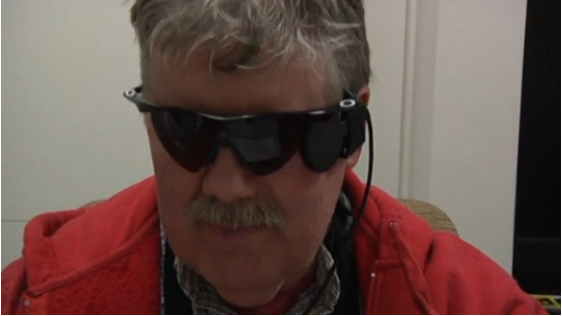'Bionic Eye' Implant Restores Blind Man's Vision; One Of The First Users Of FDA-Approved Device

People who are legally blind may now have hope to see again, thanks to recent successful implants of bionic eyes in several patients in the U.S.
Roger Pontz, a 55-year-old factory worker, is one of just four patients in the U.S. who have received an artificial retina, as the Food and Drug Administration (FDA) just approved the use of these surgical implants last year. Pontz was diagnosed with retinitis pigmentosa, a degenerative eye disease that left him legally blind, during his adolescence.
Now, thanks to his bionic eye, Pontz is able to see black and white as well as shadows. Though his full vision isn’t restored, being able to make out shapes — as well as distinguish between light and dark shades — has had an enormous impact on his happiness.
“What’s it worth to see again?” Potz said, according to The Associated Press. “It’s worth everything.”
The bionic eye in Pontz’s left eye works through the use of a video camera and transmitter that is attached to a pair of glasses. The camera captures images and then converts them into electrical pulses transmitted to the retina surface, stimulating the remaining healthy cells on the retina. This stimulation then leads these cells to relay the signal to the optic nerve, allowing the visual information to be transferred to the brain, where it is converted into light patterns.
Retinitis pigmentosa is an inherited degenerative eye disease that causes vision impairment and can ultimately lead to complete blindness. Symptoms can occur in infancy or early adolescence but sometimes don’t appear until later in life.
The surgical procedure has been performed in Europe before but just now started happening in the U.S., where the University of Michigan and 11 other centers are offering services for patients. Patients must be aged 25 or older and must have end-stage retinitis pigmentosa — having almost no light perception in both eyes — in order to be eligible for the surgery.
Both Pontz and his wife have enjoyed the benefits of him being able to discern shapes and rely on vision to walk around. “It’s awesome,” Pontz told the AP. “It’s exciting, seeing something new every day.”



























